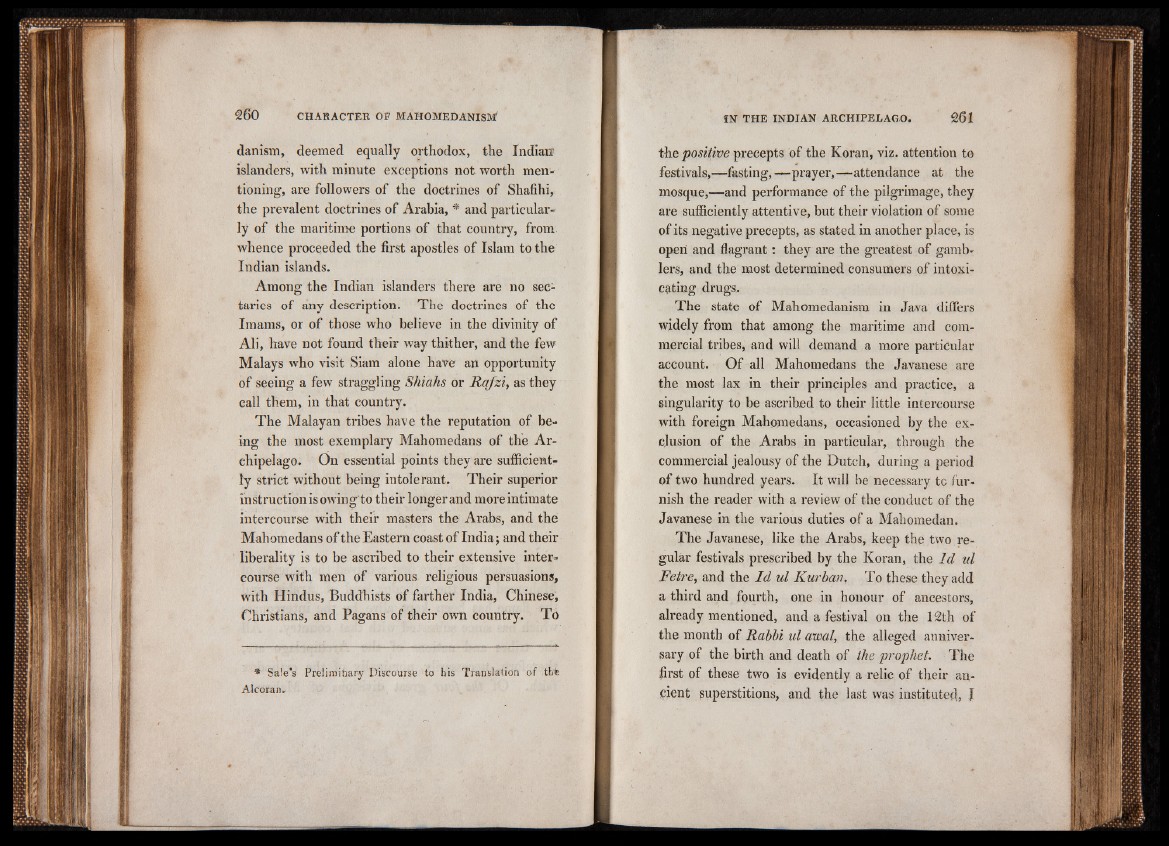
danism, deemed equally orthodox, the Indian
islanders, with minute exceptions not worth mentioning,
are followers of the doctrines of Shafihi,
the prevalent doctrines of Arabia, * and particularly
of the maritime portions of that country, from
whence proceeded the first apostles of Islam to the
Indian islands.
Among the Indian islanders there are no sectaries
of any description. The doctrines of the
Imams, or of those who believe in the divinity of
Ali, have not found their way thither, and the few
Malays who visit Siam alone have an opportunity
of seeing a few straggling Shiahs or Rafzi, as they
call them, in that country.
The Malayan tribes have the reputation of being
the most exemplary Mahomedans of the Ar-
ehipelago. On essential points they are sufficiently
strict without being intolerant. Their superior
instruction is owing to their longerand more intimate
intercourse with their masters the Arabs, and the
Mahomedans of the Eastern coast of India; and their
liberality is to be ascribed to their extensive intercourse
with men of various religious persuasions,
with Hindus, Buddhists of farther India, Chinese,
Christians, and Pagans of their own country. To
* Sale’s Prelimitaary Discourse to his Translation of tht
Alcoran.
the positive precepts of the Koran, viz. attention to
festivals,—fasting,—prayer,—attendance at the
mosque,—and performance of the pilgrimage, they
are sufficiently attentive, but their violation of some
of its negative precepts, as stated in another place, is
open and flagrant : they are the greatest of gamblers,
and the most determined consumers of intoxicating
drugs.
The state of Mahomedanism in Java differs
widely from that among the maritime and commercial
tribes, and will demand a more particular
account. Of all Mahomedans the Javanese are
the most lax in their principles and practice, a
singularity to be ascribed to their little intercourse
with foreign Mahomedans, occasioned by the exclusion
of the Arabs in particular, through the
commercial jealousy of the Dutch, during a period
of two hundred years. It will be necessary tc furnish
the reader with a review of the conduct of the
Javanese in the various duties of a Mahomedan.
The Javanese, like the Arabs, keep the two regular
festivals prescribed by the Koran, the Id ut
Fetre, and the Id ul Kurban, To these they add
a third and fourth, one in honour of ancestors,
already mentioned, and a festival on the 12th of
the month of Rabbi ul aiwal, the alleged anniversary
of the birth and death of the prophet. The
first of these two is evidently a relic of their ancient
superstitions, and the last was instituted, I